Writing: Non-Fiction
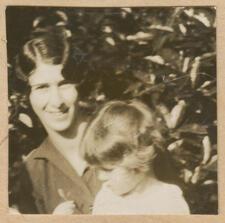
Dorothy Walter Baruch
Psychologist Dorothy Walter Baruch championed the health development of children as an educator, author, psychologist, and as a community leader. Her psychodynamic approach to child development focused on the relationship between physical, emotional, and intellectual development and on rechanneling children’s feelings through play and art therapy.

Batya Gur
Israeli author Batya Gur is best known for her mystery novels centering on the investigations of detective Michael Ohayon. Her work brought literary complexity to the Hebrew mystery novel.
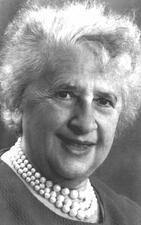
Sarah Bavly
Dutch-born Sarah Bavly was a pioneer nutritionist in the Yishuv who laid the groundwork for Israel's nutritional infrastructure and educational programming, directing Hadassah's hospital nutrition departments and school lunch programs and establishing the State's first College of Nutrition.
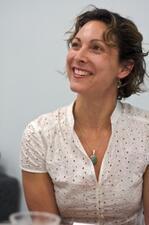
Emily Bazelon
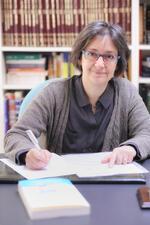
Pauline Bebe
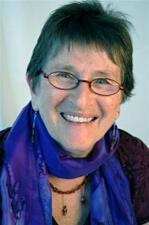
Evelyn Torton Beck

Ruth Behar
Award-winning cultural anthropologist Ruth Behar has conducted groundbreaking research in Spain, Mexico, and her native Cuba. Her innovations in cultural representation have transformed ethnographic writing and reached a broad, non-academic audience through her film, poetry, personal essays, and young adult fiction.
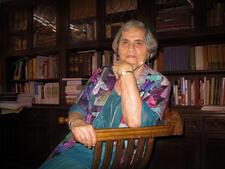
Ruth Ben Israel
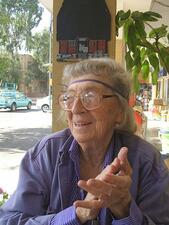
Netiva Ben Yehuda
Netiva Ben Yehuda was a Jewish-Israeli writer, poet, broadcaster, and Palmah officer. Ben Yehuda’s works surround her experiences before, during, and after her service in the Jewish underground Palmah and her dedication to enriching the lexicon of spoken Hebrew.
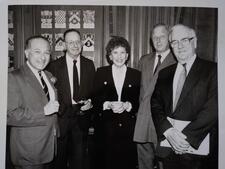
Hadassa Ben-Itto
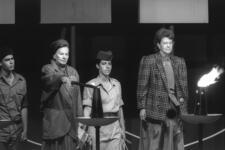
Miriam Ben-Porat

Hemdah Ben-Yehuda

Rahel Yanait Ben-Zvi
Rahel Yanait Ben-Zvi was the second First Lady of Israel, wife to President Yizhak Ben-Zvi. Before and after Ben-Zvi’s tenure, she was active in the labor movement in Palestine and Israel and in the independence movement, as well as a prolific writer and recorder of her experiences in Erez Israel.
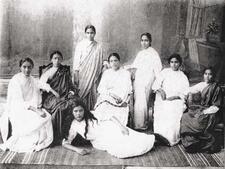
Bene Israel
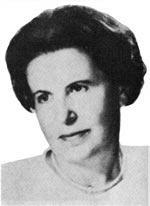
Lili Berger
A prolific literary critic and essayist who wrote fiction, short stories, and novels, Lili Berger worked to educate, instruct, expose, and memorialize. Her works captured the Polish-Jewish experience in the twentieth century, particularly those of other writers and artists.
Jessie Bernard
Sociologist Jessie Bernard’s feminist epiphany came at age 67 in 1969, but her earlier work anticipated feminist theory by discussing the differences between men’s and women’s experiences and arguing that quantitative studies did not accurately represent women’s stories.
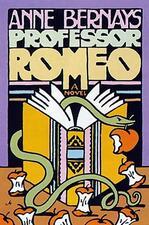
Anne Fleischman Bernays
Anne Fleischman Bernays is an American editor, novelist, and nonfiction writer. Her literary work is notable for its exploration of Jewish experiences of America, the pressure of assimilation, and the then-taboo subject of sexual harassment.

Miriam Bernstein-Cohen
Miriam Bernstein-Cohen was an influential actor, director, poet, and translator in Europe and Israel. She was a versatile actor, appearing successfully both in comedies and in serious plays with the Ohel, Matateh, and Haifa Municipal Theater companies. In addition to her theater work, she wrote books and essays on theater and literature throughout her life.
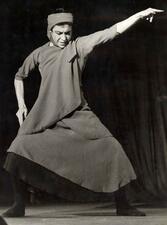
Deborah Bertonoff
From her debut at age nine through her performances in her late seventies and teaching into her late eighties, Deborah Bertonoff made dance her life’s work. Bertonoff began studying at the Bolshoi School before moving to Israel and joining the Habimah Theater. After studying dance in Europe she began choreographing, and in 1944 she founded a dance studio. She was honored with the 1991 Israel Prize.
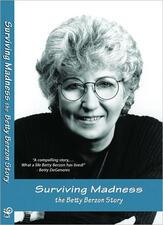
Betty Berzon
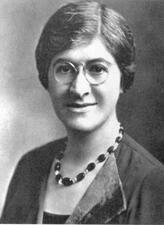
Adele Bildersee
A feminist before her time, Adele Bildersee was an advocate for women in education. She graduated with the first class of the then all-women’s Hunter College in 1903 and went on to help found Brooklyn College, serving as both its dean of students and its director of admissions.
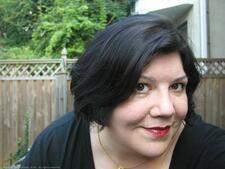
Hanne Blank
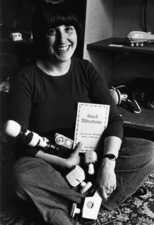
Joani Blank
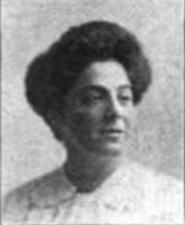
Anita Block
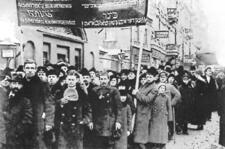
Dina Blond
As chairwoman of the Bundist women’s organization Yidisher Arbeter Froy, Dina Blond was one of the most prominent representatives of the Jewish labor party in interwar Poland. At the same time, she was also one of the best-known Yiddish translators of her day.


